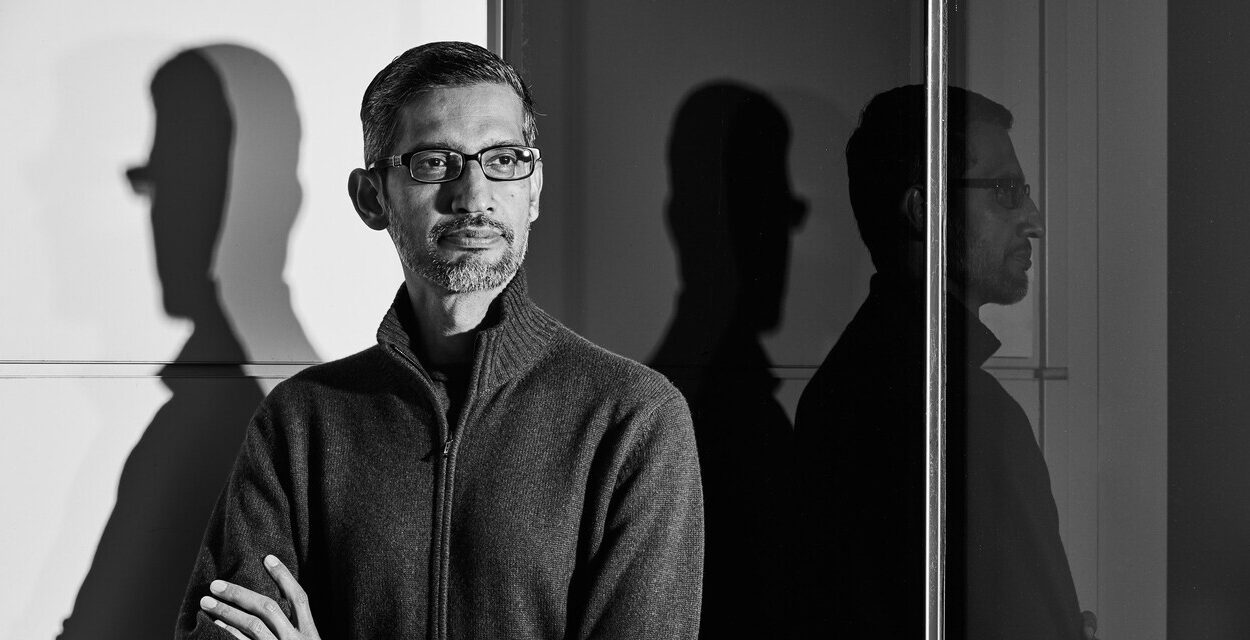In a rare one-on-one interview on the All-In Podcast, Alphabet CEO Sundar Pichai sat down for an in-depth conversation about the future of Google, the transformative role of AI, and how the company is reshaping its products and strategy for the next wave of innovation.
The discussion offered a rare inside look into how one of the most powerful executives in tech is thinking about the next phase of digital transformation—and what it means for users, developers, and global markets.
AI Isn’t Just a Feature—It’s the Future of Google
Pichai didn’t mince words when discussing AI’s role across Alphabet.
“AI is the most profound technology we are working on. It’s more significant than fire or electricity.”
He emphasized that AI is no longer confined to isolated teams—it is being embedded across all major products, including Search, YouTube, Google Cloud, and Workspace. Alphabet’s focus is now on making AI reliable, helpful, and trustworthy.
“We think of AI as a horizontal layer. It’s something that touches everything we do.”
“One of the first things I did was to think of the company as AI-first… The reason we were excited to approach our work as AI-first is because we really felt that AI is what will drive the biggest progress in search. So it feels very far from a zero-sum construct to me.” “AI Overviews is now being used by over 1.5 billion users in over 150 countries… We find for queries where we trigger AI overviews, we see query growth and the growth continues over time.” “To your question about innovator’s dilemma — I think the dilemma only exists if you treat it as a dilemma. So for me, all along in technology, you have these massive periods of innovation, and you lean into it as hard as you can. It’s the only way to do it.” “When mobile came, everyone was like, well… you’re not going to have the real estate, how will ads work, all that stuff. Mobile was a transition which ended up working great.” “To me, you don’t think about it as a dilemma, because you have to innovate to stay ahead.” “It’s like one of the original principles of Google — follow the user, all else will follow.”
Rethinking Search—Not Replacing It
One of the most pressing questions was how AI will impact the future of Google Search.
“Search is evolving. We are moving from answers to journeys.”
“AI Overviews is now being used by over 1.5 billion users in over 150 countries… With AI Overviews… it’s the same [ad revenue] as without AI Overviews. We’ve reached that stage… From there, we can improve.”
Pichai explained that while AI tools like Gemini (Google’s AI assistant) are changing how people get information, they are not meant to replace Search—but augment it. Google is experimenting with AI Overviews, contextual results, and multimodal inputs (text, image, voice) to create a more personalized, fluid experience.
Google’s Secret Weapon? Infrastructure
A major differentiator for Google is its internal infrastructure, especially its custom-built TPUs (Tensor Processing Units).
“We’ve been building AI infrastructure for nearly a decade. That foundation is now paying off.”
Google’s ability to train large models more efficiently and deploy them across products at scale is a huge competitive advantage. Pichai emphasized the importance of vertically integrated AI stacks, combining hardware, software, and research.
Human-AI Interaction Will Become Invisible
Looking into the future, Pichai described a world where technology blends naturally into our daily lives, much like electricity today.
“In the future, interacting with AI will feel like talking to a friend. It should be ambient, helpful, and non-intrusive.”
He hinted at new hardware innovations and natural interfaces being explored at Google—like voice-first experiences and AI-optimized mobile systems.
Company Culture, Hiring, and AI Talent Wars
The conversation also turned inward: how does Google maintain its culture of innovation while competing with scrappy startups and fast-moving AI labs?
“You have to combine scale with speed. That’s hard. But we’re learning how.”
Pichai admitted the hiring environment is competitive, especially for AI engineers, but noted that Google remains a destination for those wanting to work on global-scale problems.
Alphabet’s Moonshots: Quantum, Robotics, and More
Pichai reaffirmed Alphabet’s commitment to long-term bets.
“We’re not afraid to invest in bold ideas. That’s how Waymo, DeepMind, and even Android started.”
“Quantum feels like where AI was in 2015… in 5 years, you’ll see the ‘aha’ moment — useful computation far better than classical.”
He specifically mentioned quantum computing, robotics, and next-gen AI platforms as key areas of exploration, signalling that Alphabet is still thinking in decades, not just quarters.
Final Thoughts
This wasn’t just a PR appearance—Pichai’s interview on the All-In Podcast felt like a strategic reveal. Google isn’t just adapting to the AI age—it’s trying to lead it, structurally and culturally.
Whether you’re a retail investor, developer, or just a curious tech follower, this conversation gave rare insights into one of the most influential minds shaping the digital world today.
Full interview here:
Disclosure: This article does not represent investment advice. The content and materials featured on this page are for educational purposes only.
Related:
Billionaire Investors Reveal Q1 2025 Portfolio Moves: Buffett, Ackman, Tepper, Burry & More
Trump & US Executives Lock In Over $1 Trillion in Middle East Deals
Qatar Buys 160 Boeing Jets as Trump Accepts $400M Gift Jet
Elon Musk, Robotaxis, and Starlink: Inside Multi-Billion Dollar US–Saudi Tech Power Play
Nvidia’s Partnership With Saudi Arabia Opens a New Frontier in Global AI
Trump Secures $600 Billion Saudi Investment in US Tech, Energy, and AI
US Drug Price Revolution Begins: Trump Targets 30–80% Cuts
US and China announce deal to cut reciprocal tariffs for 90 days










